
In today’s connected world, our mobile devices are treasure troves of personal information. A staggering number of cyber threats target smartphones every day. This article delivers practical steps to shield your mobile privacy and keep data safe on the go.
Let’s dive in and safeguard your digital life!
Key Takeaways
- Always use strong passwords and enable biometric security features to prevent unauthorised access to your mobile device.
- Keep your apps and operating system up to date to defend against the latest cyber threats, and install trusted antivirus software for additional protection.
- Regularly review app permissions and be selective with the information you share; only download apps from reputable sources.
- Protect your data when using public Wi-Fi by employing a VPN, which encrypts your internet connection to keep personal information safe.
- Back up important data regularly, utilise Find My Device for locating lost phones, and know how to remotely wipe data if necessary.
1. Protect Your Data with Strong Login Methods
Ensure your mobile device is protected with strong login methods such as a secure password or biometric authentication. Additionally, enable two-factor authentication for an extra layer of security.
Use a Strong Password and/or Biometrics
Your mobile device is like a personal vault, holding valuable information. To protect it, choose passwords that are hard for others to guess. Mix letters, numbers, and symbols to create a complex code only you know.
Avoid using easily guessed passwords such as birthdays or common phrases.
Biometric authentication adds another layer of security. Opt for fingerprint scans or facial recognition features available on your device for quick yet secure access. This high-tech lock keeps prying eyes out and ensures only you can unlock your private digital world.
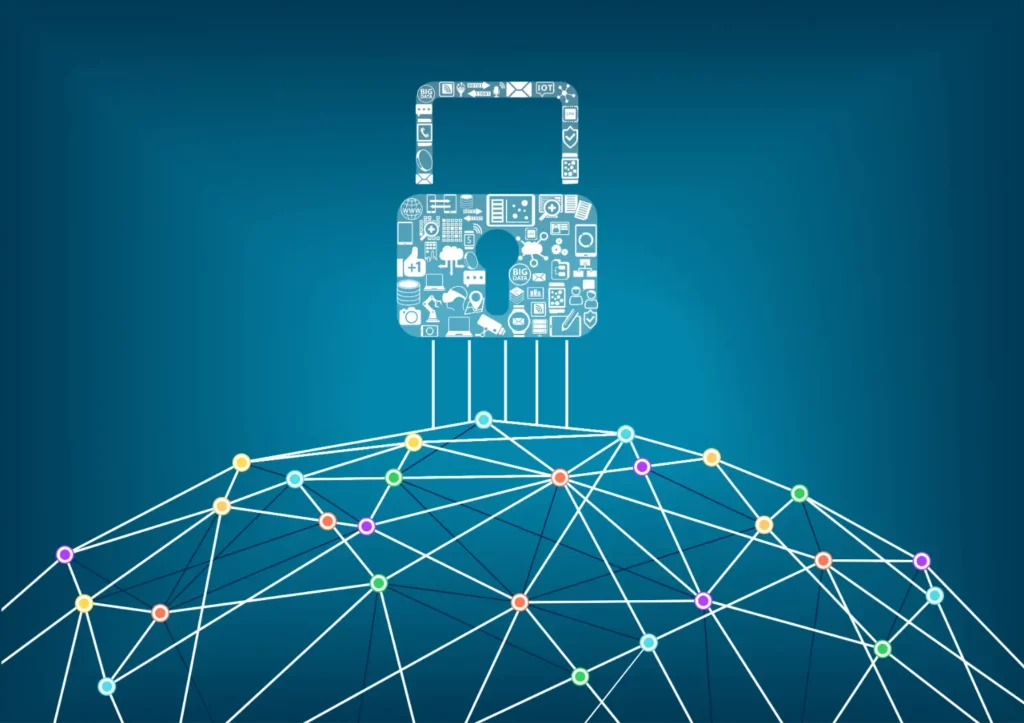
Enable Two-Factor Authentication
Enable two-factor authentication to add an extra layer of security to your mobile device. This feature requires a second form of verification, such as a code sent to your phone, in addition to your password for logging in.
By doing so, you significantly reduce the risk of unauthorised access and protect sensitive personal information from potential breaches.
By enabling two-factor authentication, you create an added barrier against cyber threats that could compromise your privacy. It’s a simple yet effective way to safeguard your data and provide peace of mind when using your mobile device.
2. Securing Your Device
Keep your operating system and apps updated to protect against security vulnerabilities. Installing antivirus software can also help safeguard your device from malware and cyber threats.
Keep Your Operating System and Apps Updated
Regularly updating your operating system and apps is crucial for maintaining the security of your mobile device. Here are some important steps to take:
- Ensure that automatic updates are enabled on your device to receive the latest security patches and bug fixes promptly.
- Regularly check for updates manually, as automatic updates may not always occur immediately.
- Keep an eye out for app updates in the app store and install them as soon as they become available.
- Stay informed about the latest security threats and vulnerabilities by regularly reading reliable tech news sources.
Install Antivirus Software
Regularly updating your smartphone’s software is crucial, but installing antivirus software adds an extra layer of protection. Antivirus software can help detect and prevent malware and other security threats from infiltrating your device, safeguarding your personal information.
It provides real-time scanning to identify and remove any potential threats before they compromise your privacy. By regularly updating the antivirus database, you ensure that it remains effective against the latest cyber threats.
Using reputable antivirus software is essential for safeguarding your mobile device from various online risks such as phishing attacks, ransomware, and malicious apps. This proactive approach empowers you to protect sensitive data on your smartphone or tablet effectively.
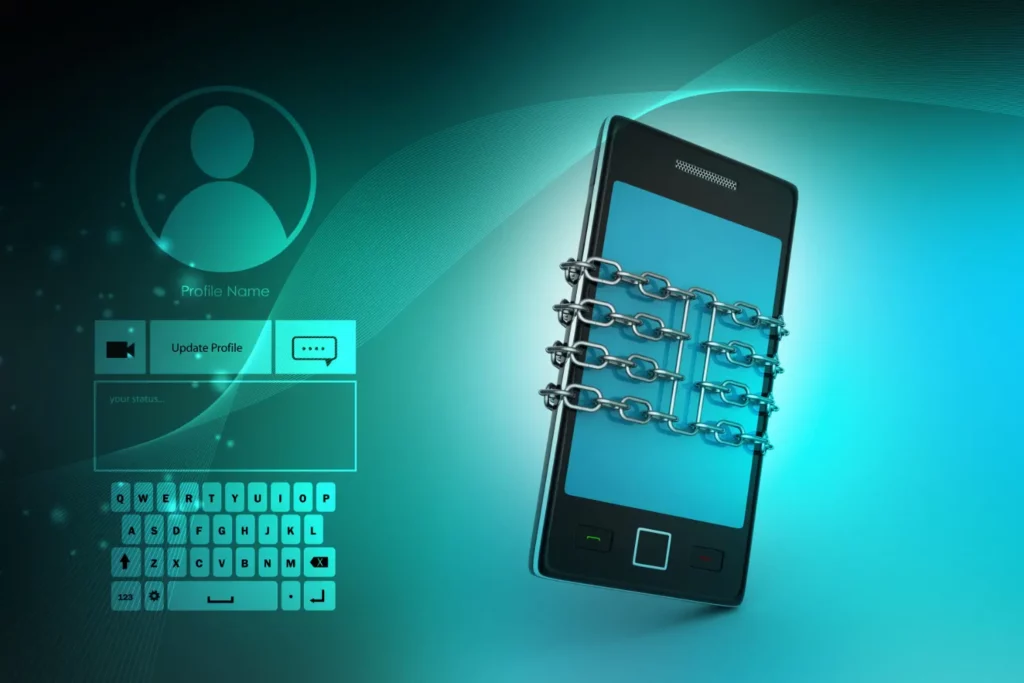
Encrypt Your Device
Encrypt your device to add an extra layer of security to your mobile data. This process scrambles the information on your phone, making it unreadable to anyone without the encryption key.
By doing this, you can ensure that even if someone gains physical access to your phone, they won’t be able to access your sensitive personal information.
Consider using a strong password or pin as part of the encryption process for added protection. Additionally, take advantage of encrypted communication methods for calls and messages, further safeguarding your privacy from potential threats.
3. Limit App Permissions
Audit the permissions of your apps and only grant access to the necessary functions. Be discerning with what you download, as some apps may request unnecessary access to your personal information.
Audit App Permissions
Regularly reviewing and managing app permissions on your mobile device is crucial for protecting your privacy and data. Here are important steps to follow:
- Check app permissions in settings to ensure that each app only has access to the necessary information on your phone, such as location, contacts, or camera.
- Review the permissions of each individual app and revoke any unnecessary access rights, especially for apps that you do not frequently use.
- Be mindful of apps requesting excessive permissions without a valid reason, as this could pose a risk to your privacy and security.
- Regularly update apps to benefit from enhanced security measures and revised permission settings that protect your personal information.
- Consider using privacy-focused apps that prioritise user data protection and limit the amount of data they collect from your device.
- Educate yourself about different types of app permissions and their potential impact on your privacy, enabling you to make informed decisions.
Be Discerning with Downloads
When downloading apps, ensure that they are from trusted sources to avoid potential privacy risks. By sticking to well-known app stores, you reduce the risk of inadvertently allowing access to your personal information.
Additionally, be cautious of granting unnecessary permissions when installing new applications on your mobile device.
Moreover, consider reading reviews and researching the developer before downloading any application. This will help you make an informed decision about its reliability and trustworthiness.
Engaging in this level of discernment can significantly contribute to safeguarding your smartphone’s privacy and security.
4. Secure Your Network
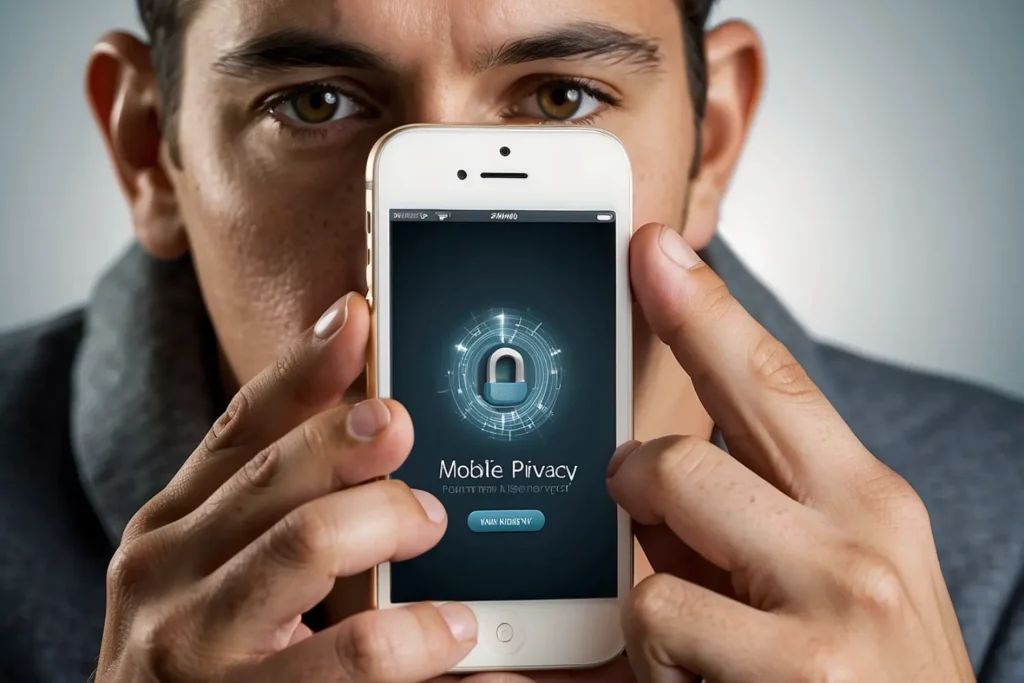
Use a VPN when connecting to public networks to encrypt your data and prevent unauthorised access. Limit access to sensitive information when using public Wi-Fi to protect your privacy on mobile devices.
Use a VPN on Public Networks
When connecting to public Wi-Fi networks, it’s crucial to use a VPN on your mobile device. This additional layer of security encrypts your internet traffic, protecting your personal information from potential hackers.
By using a VPN, you can safeguard against unauthorised access and keep your data secure, especially when accessing sensitive information such as online banking or work-related documents.
Utilising a VPN on public networks is an essential practice in maintaining the privacy and security of your mobile device.
Limit Access to Sensitive Information
When using your mobile device, it’s crucial to limit access to sensitive information. Adjust the privacy settings on your phone so that apps can only access necessary data, reducing the risk of unauthorised access to personal details.
Additionally, be selective when granting app permissions-ensure that only essential information is shared with each application to maintain a higher level of privacy and security for your personal data.
Employing robust security measures such as setting a strong passcode, installing antivirus software, and regularly updating your smartphone’s software are also crucial in safeguarding sensitive information from potential threats.
Additional Tips for Protecting Your Mobile Privacy
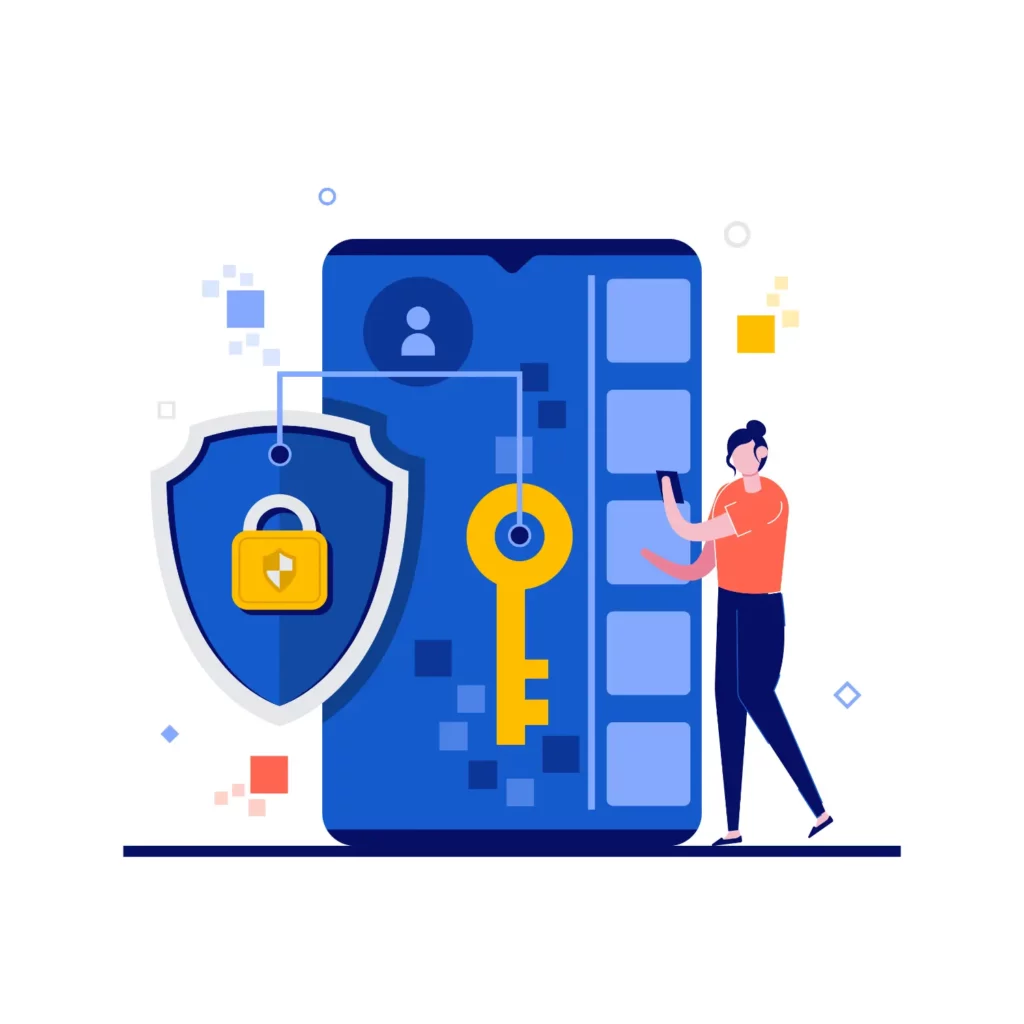
Backup your data regularly to prevent loss in case of theft or device damage. Utilise features like Find My Device and remote wipe to protect your information if your phone is lost or stolen.
Be cautious when using public networks, as they can be vulnerable to hackers trying to access your personal information.
1. Backup Your Data
Make regular backups of your mobile device’s data to ensure that you don’t lose important information in case of theft or damage. Here are some effective ways to back up your data:
- Utilise cloud storage services such as Google Drive, iCloud, or Dropbox to automatically back up your photos, videos, and documents.
- Consider using a dedicated backup app that allows you to schedule regular backups of all your device’s data, including contacts, messages, and application data.
- Connect your smartphone to your computer and use software like iTunes or Samsung Kies to create a complete backup of your device on your PC or Mac.
- For added security, consider using an external hard drive or USB drive to manually back up your important files and media from your mobile device.
2. Utilise Features Like Find My Device and Remote Wipe
To further protect your privacy and security, consider utilising features like Find My Device and remote wipe. These tools can help you locate a lost or stolen device and even remotely wipe its data to prevent unauthorised access to your personal information. Here are some ways to make the most of these features:
- Find My Device: This feature allows you to locate your device on a map, ring it at full volume (even if it’s set to silent), and lock or erase your device remotely if necessary.
- Remote Wipe: In case your device is lost or stolen, remote wipe enables you to erase all the data on your phone from a distance, ensuring that your personal information remains safe.
- Activation Lock: For iPhone users, ensure that Activation Lock is enabled, as it prevents anyone from activating the device without knowing your Apple ID and password.
- Google Account Smart Lock: Android users can take advantage of the Smart Lock feature linked to their Google account for added security and convenience when accessing their devices.
- Regularly Check Settings: Stay updated on the settings related to these features in case they need to be adjusted due to changes in technology or service providers’ policies.
3. Be Cautious on Public Networks
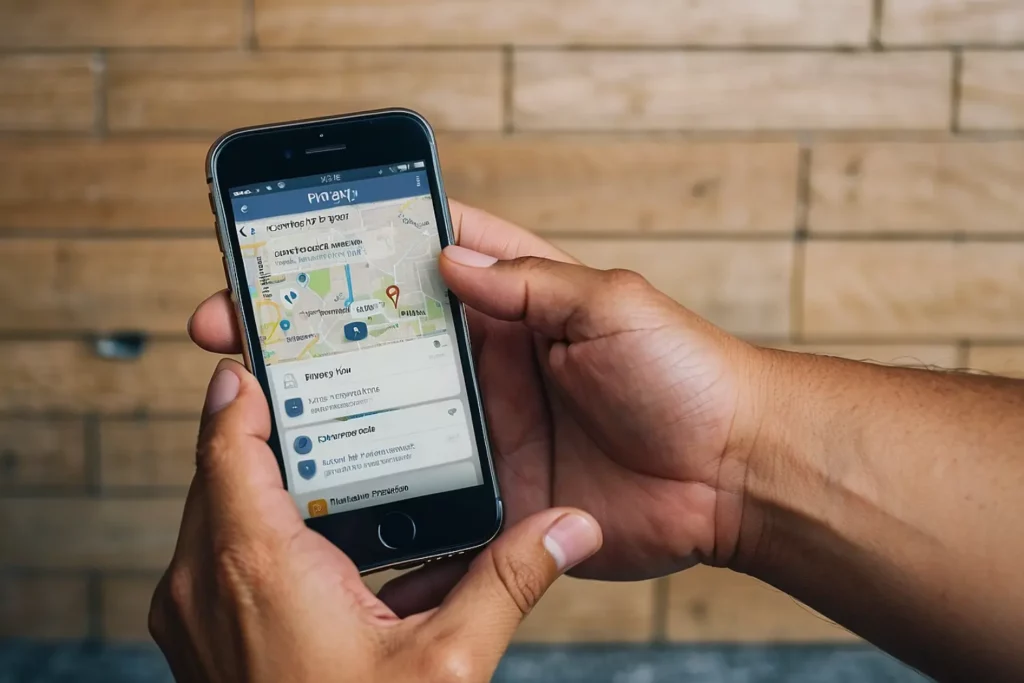
When using public networks, always use a VPN to safeguard your online activities from potential threats and unauthorised access. Public Wi-Fi networks are prime targets for cybercriminals looking to intercept sensitive information, so it’s crucial to take extra precautions when connecting to these networks.
By utilising a VPN on public networks, you can encrypt your data and ensure that your online communications remain secure and private.
To further protect your privacy on mobile devices, it’s essential to be mindful of the risks associated with public networks and take proactive measures to mitigate them. Up next: “Additional Tips for Protecting Your Privacy.”.
In conclusion, safeguarding your privacy on mobile devices is crucial. Enable two-factor authentication for added security. Stay updated with software and use strong login methods to secure your personal information.
Adjust app permissions, limit network access, and consider a VPN for extra protection. Regularly apply these tips to ensure your smartphone privacy remains intact.
FAQs
What are some basic tips to secure my mobile device?
To ensure your smartphone privacy, start by activating a secure lock screen, use privacy controls that come with your phone and install updates for mobile security.
How can I protect personal information on my phone from hackers?
Protect your personal data by using VPNs for mobile devices when online, and be cautious not to share too much private information on social media or public networks.
Is there a way to safeguard my phone from being accessed without permission?
Absolutely! Prevent unauthorised access by setting up strong passwords or biometric authentication like fingerprint or face recognition on your smartphone for added cybersecurity.
Can installing apps affect the privacy of my mobile device?
Yes, always check permissions before downloading apps to ensure you’re protecting personal information security; only download from trusted sources to maintain online safety.
What should I do if I lose my phone to keep my data safe?
If you lose your phone, immediately use remote wipe services if available to erase sensitive data and prevent potential theft of your personal information.
